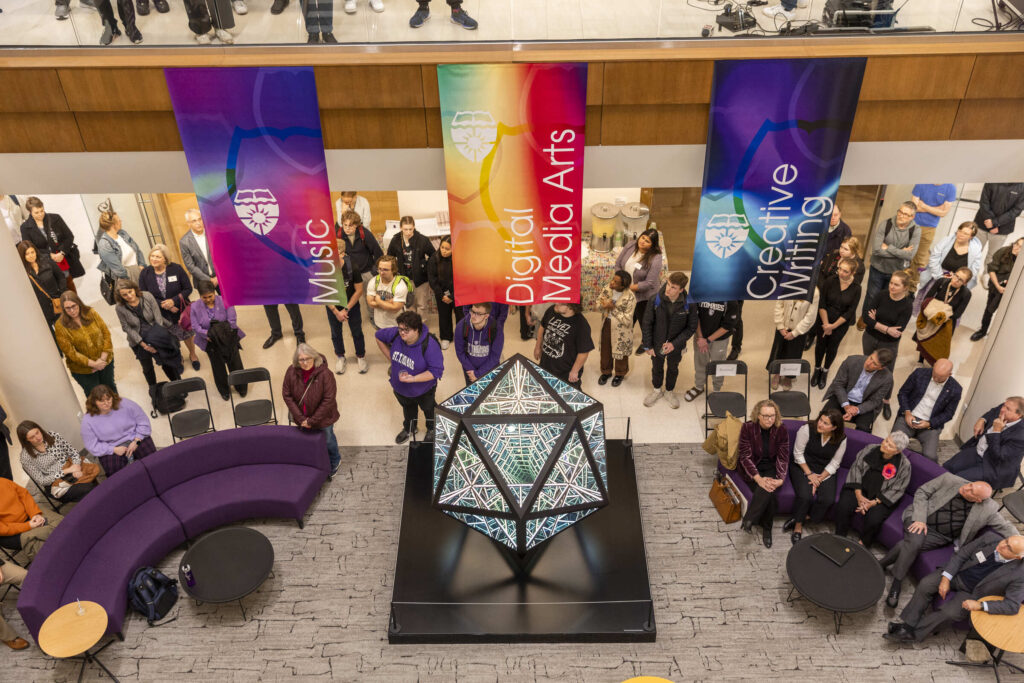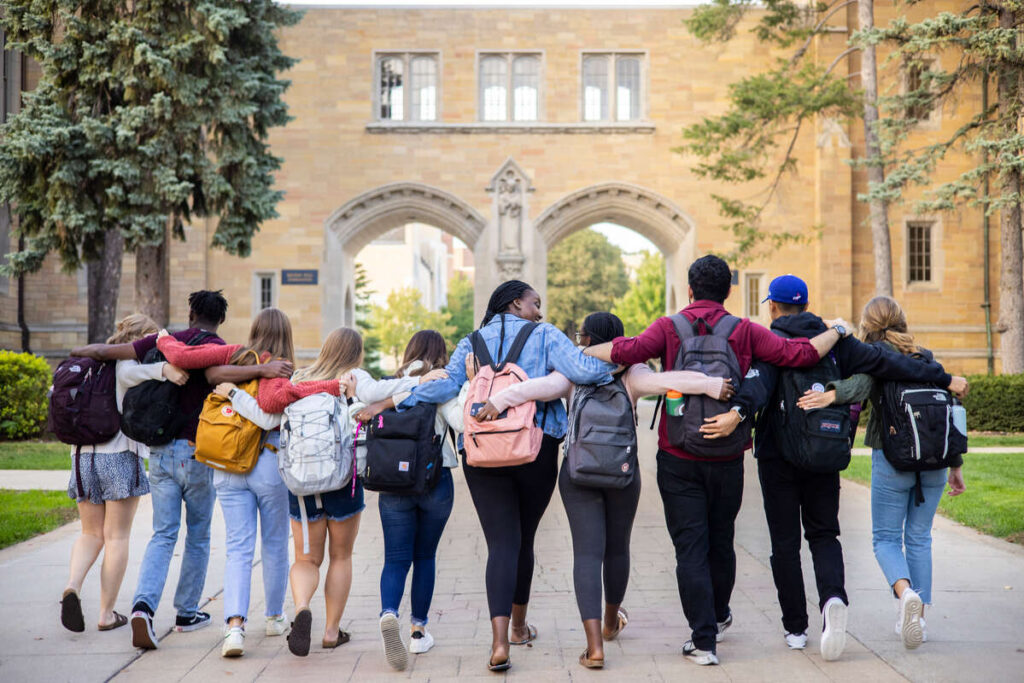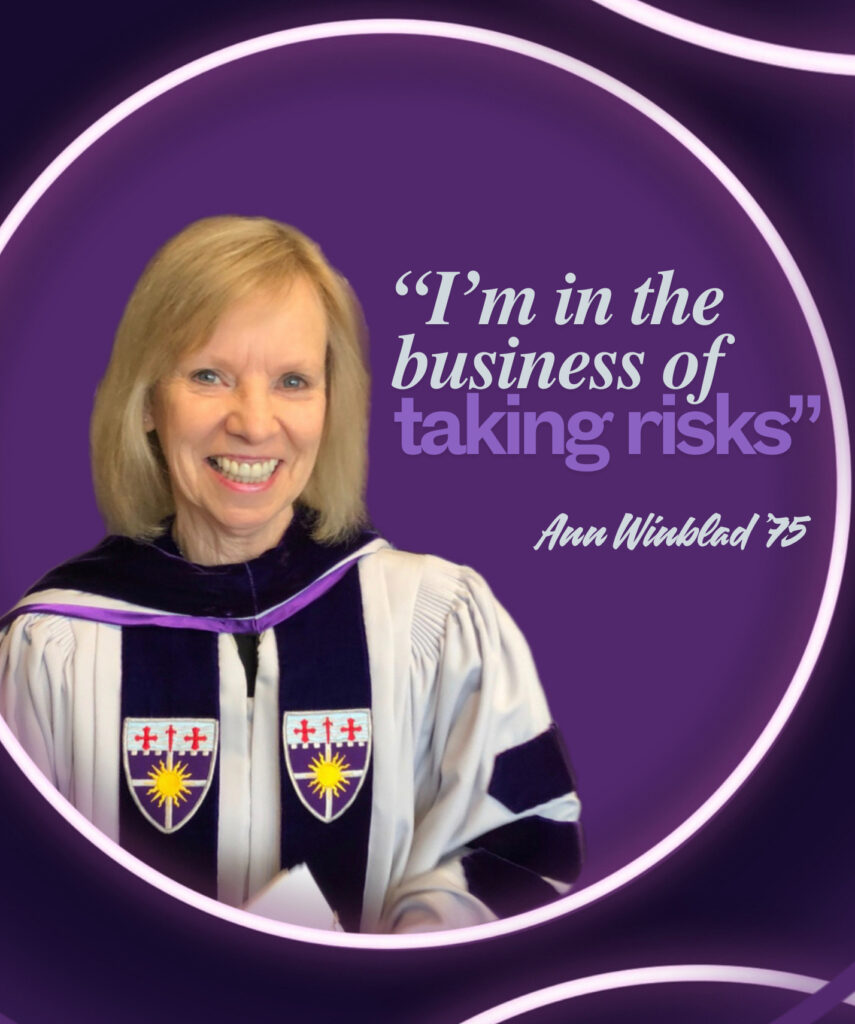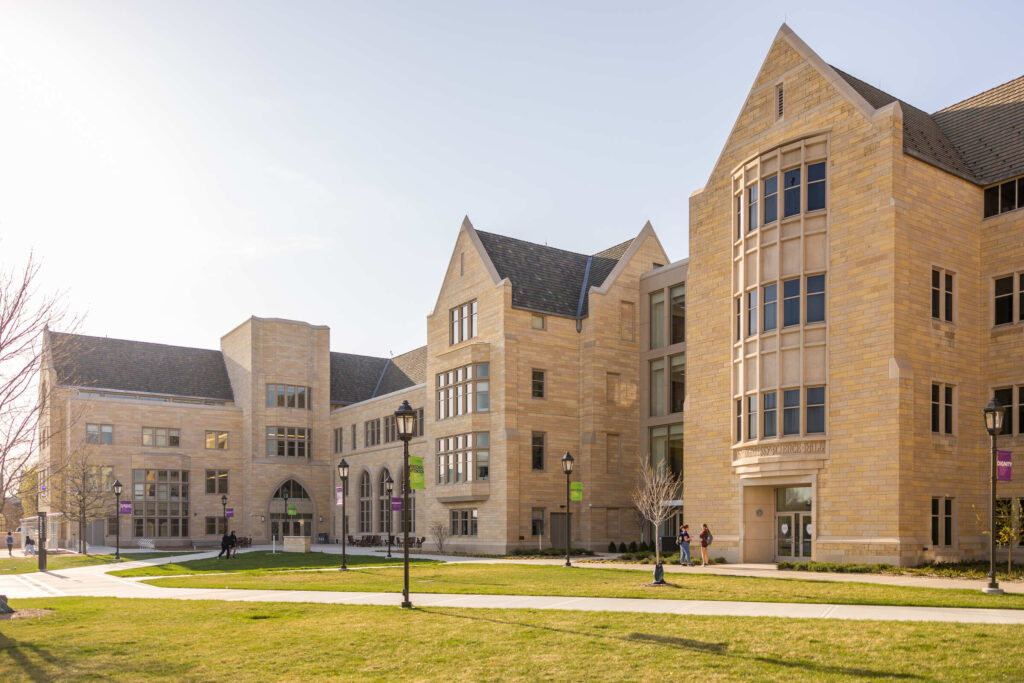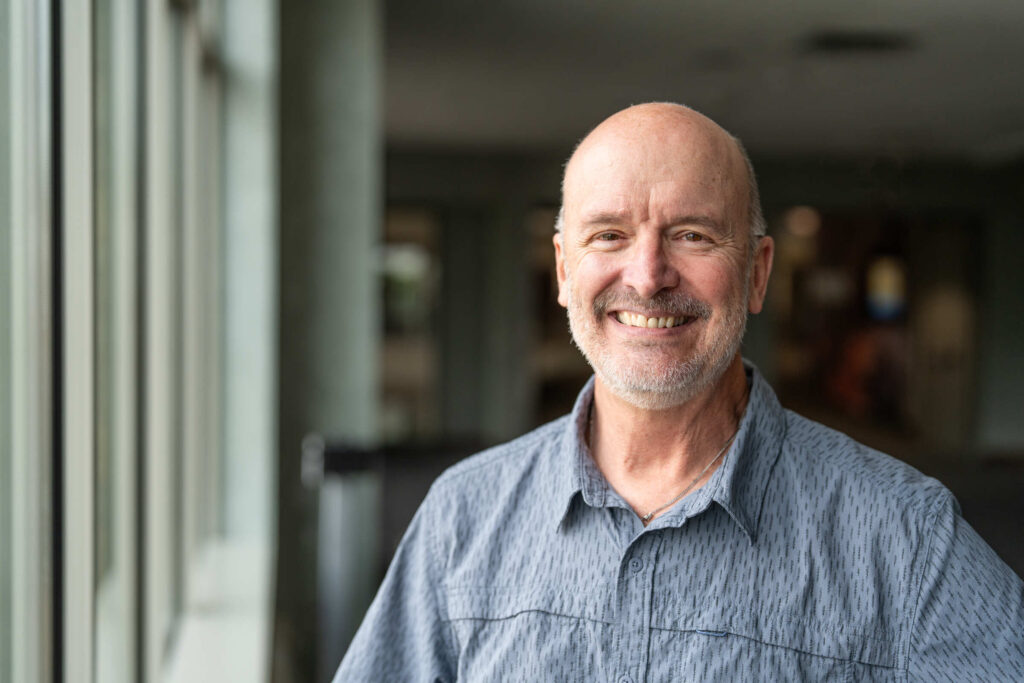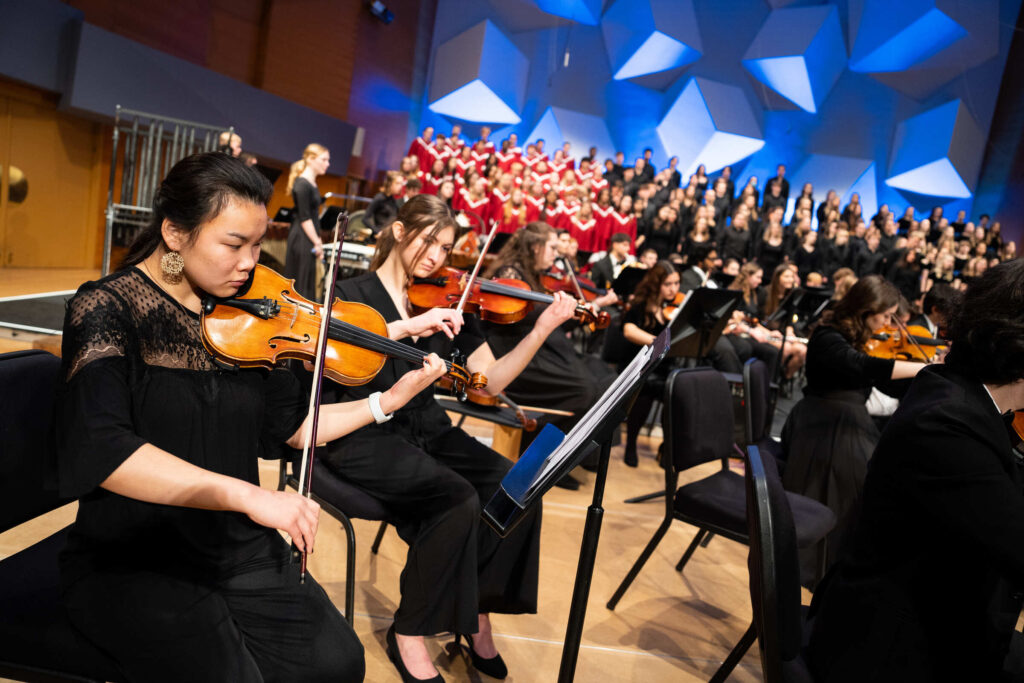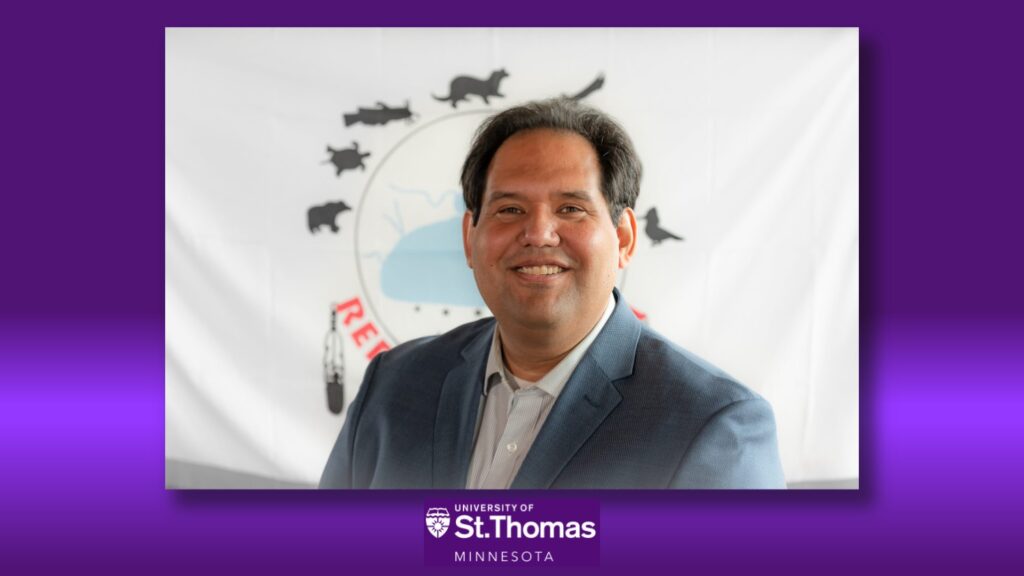After years of serving as the primary caregiver for her grandmother, Florence Wright ’15 MSW developed a passion for working with older adults.
“It didn’t take long before I realized that I wanted to help people, and I had this curiosity in understanding their thoughts, feelings and experiences during times of great stress, loss and change,” Wright said.
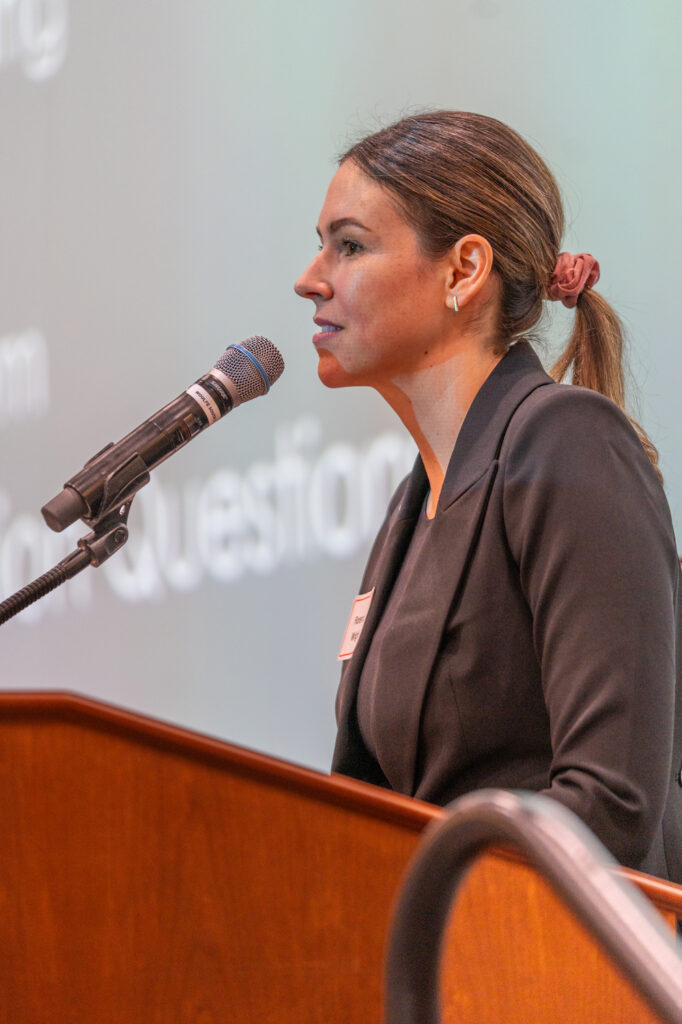
Wright turned to the School of Social Work at the University of St. Thomas in Minnesota to transform her passion into a career. Attracted to the school’s special area of emphasis in practice with older adults, this then-aspiring social worker felt it was the perfect fit.
Wright is one of hundreds of alumni reflecting on their time at St. Thomas as the School of Social Work celebrates its 50th anniversary. Since its first graduating class in 1974, Tommie social workers have spread out, advancing health equity and community well-being across the globe.
Wright is now a sought-after palliative care expert in the Twin Cities and beyond. The Tommie alum works directly with patients and trains other specialists at Allina Health. She also advocates for aging and chronically ill patients across the state as a member of the Minnesota Palliative Care Advisory Committee.
She credits her professional success with the ample hands-on learning opportunities at St. Thomas, including the chance to work in the field alongside hospice experts.
“My time at St. Thomas built the foundation of my social work skills and my values,” said Wright, who was awarded the 2024 Distinguished Alumni Award. “I found my voice there, and now I am working to encourage others to find a voice and to make their own impact.”
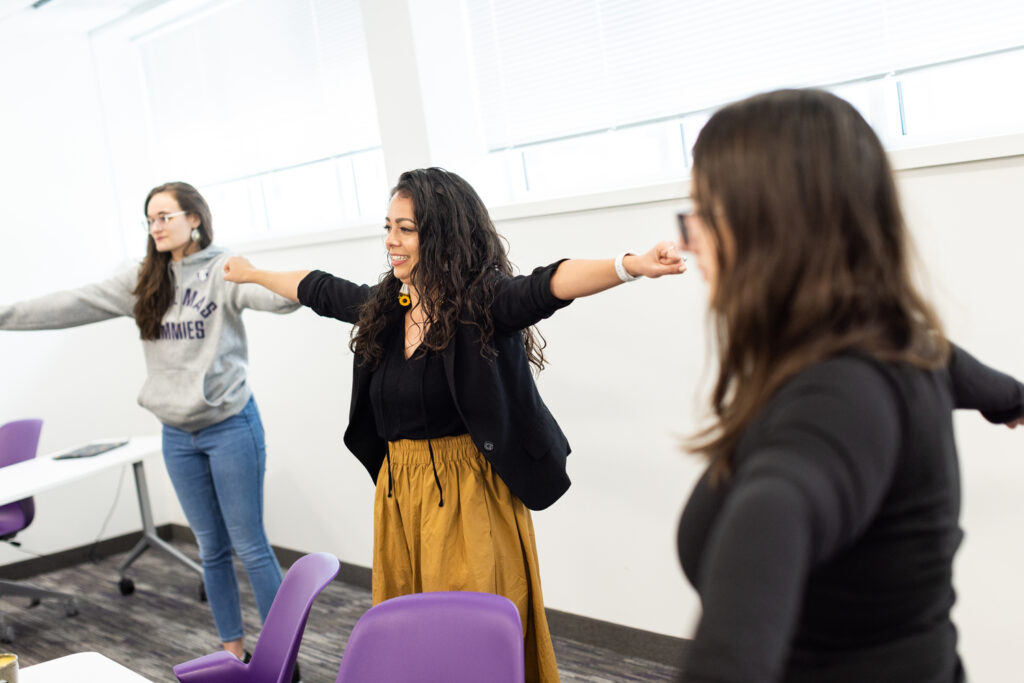
Half a century of impact
Social workers practice at many different levels to make the world a better place, serving on the front lines of society’s most pressing issues, including income inequality, affordable housing, mental health, health care access, and above all, social justice. The university has offered courses in social work since the 1930s, but it was first offered as an undergraduate major as part of a joint program with St. Catherine University in 1974.
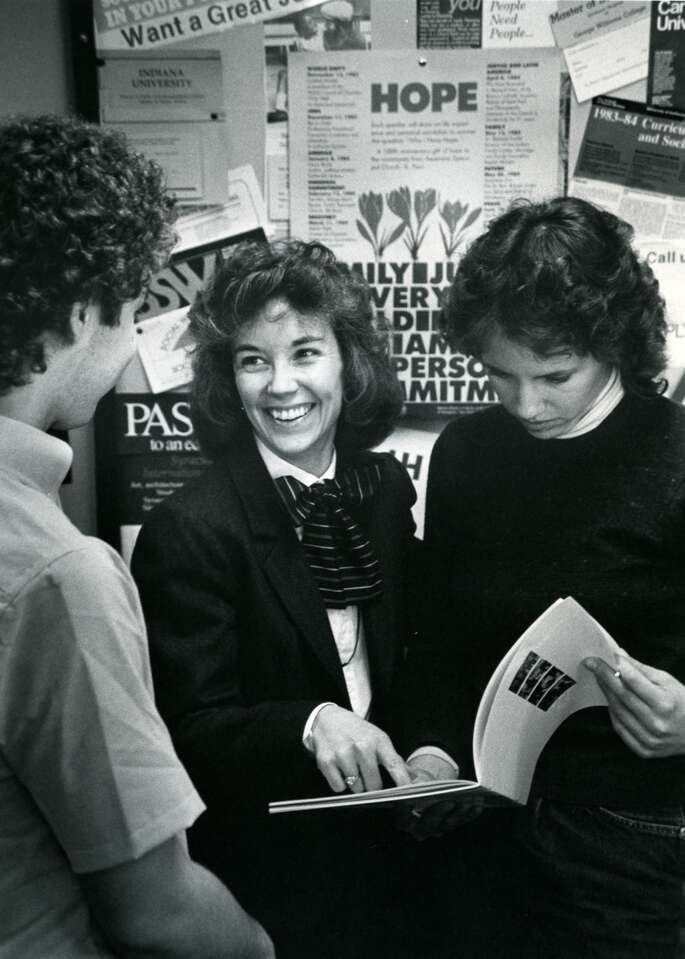
The two institutions established the St. Kate’s-St. Thomas School of Social Work in 1996, before splitting in 2019. Along the way, a Master of Social Work was added and, more recently, an online Doctor of Social Work program, one of the first of its kind in the country.
The School of Social Work is now part of the newest college at St. Thomas: the Morrison Family College of Health. With the college’s focus on addressing factors that prevent good health, social work has been elevated as a visible and prominent profession that is essential for creating hope, healing, and social change to advance human flourishing.
“The world would not be the same without social workers,” St. Thomas School of Social Work Director and Professor Ande Nesmith said. “The work that our graduates are doing makes a big difference to individuals, families and communities, especially for the most underserved.”
And the need is only growing. Employment in the field is expected to expand by more than 20% in the next decade. Behind the growth: demographic and health reform trends, such as an aging population and increasing number of veterans and immigrants.
In recent years, St. Thomas has been laser focused on finding solutions to workforce shortages. Students are offered the chance to concentrate on critical, emerging practice areas like aging and refugee work. Millions of dollars in federal grant money are also fueling support to train licensed alcohol and drug counselors and trauma-informed early education specialists, among others.
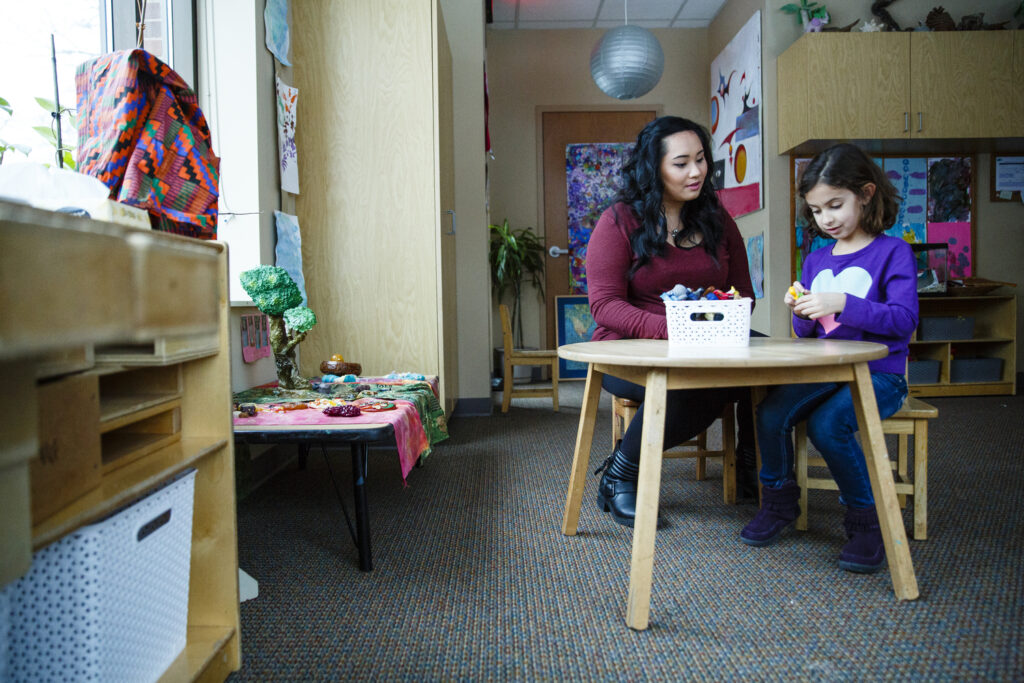
Through it all, the School of Social Work is committed to ensuring this new workforce is more reflective of the communities it serves.
“We’re really trying to draw people in who represent their own communities, who can provide care that is culturally responsive and more nuanced, and in the end, better serve the health and well-being of that community,” Nesmith said.
Transforming the workforce
According to a recent survey by the Minnesota Department of Health, 90% of the state’s social workers are white, with a large majority of those women. St. Thomas leaders are working closely with community partners to welcome more men and people of color into the field.
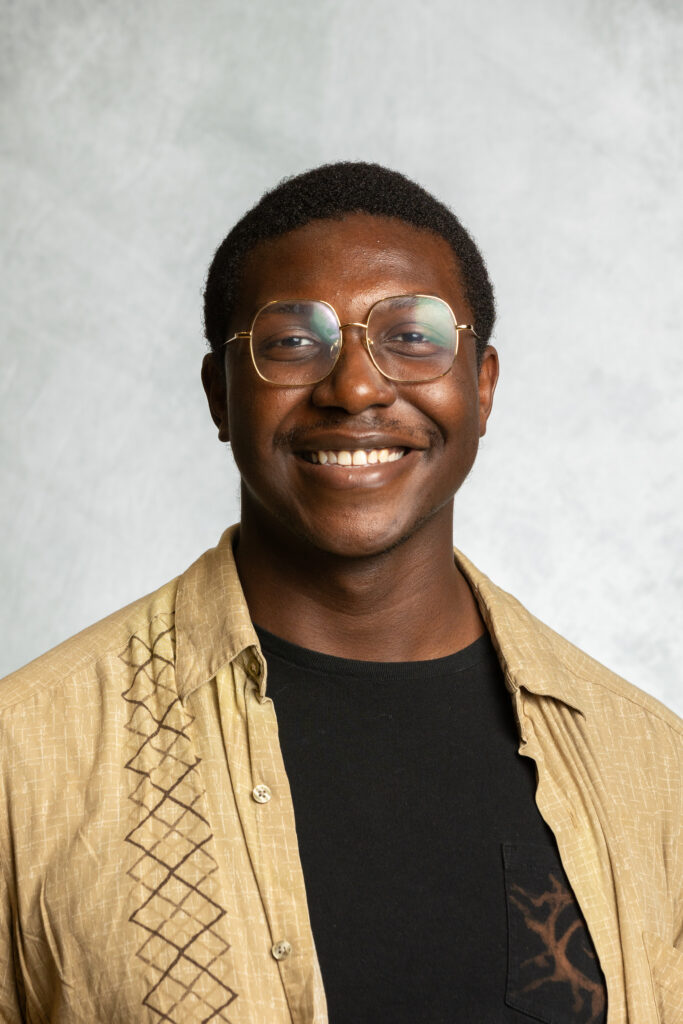
Those new recruits include Bachelor of Social Work major Theodes Saine ’26, who recently graduated with his associate degree from the Dougherty Family College (DFC) at St. Thomas.
As a child, Saine moved with his family to the Twin Cities from Tennessee, but they had difficulties finding housing. Social workers stepped in to provide shelter and other resources.
“That was an important moment that shaped my life, and ever since then, I’ve wanted to help in a similar way,” Saine said.
Aware that there are very few Black men currently working in social work, he’s looking forward to rejoining his community with the skills and knowledge necessary to make a difference.
“There are so many people who don’t get the support they need because their voice isn’t at the table when those discussions are happening,” Saine said. “I want to be that voice, that is working alongside my community – not just for it.”
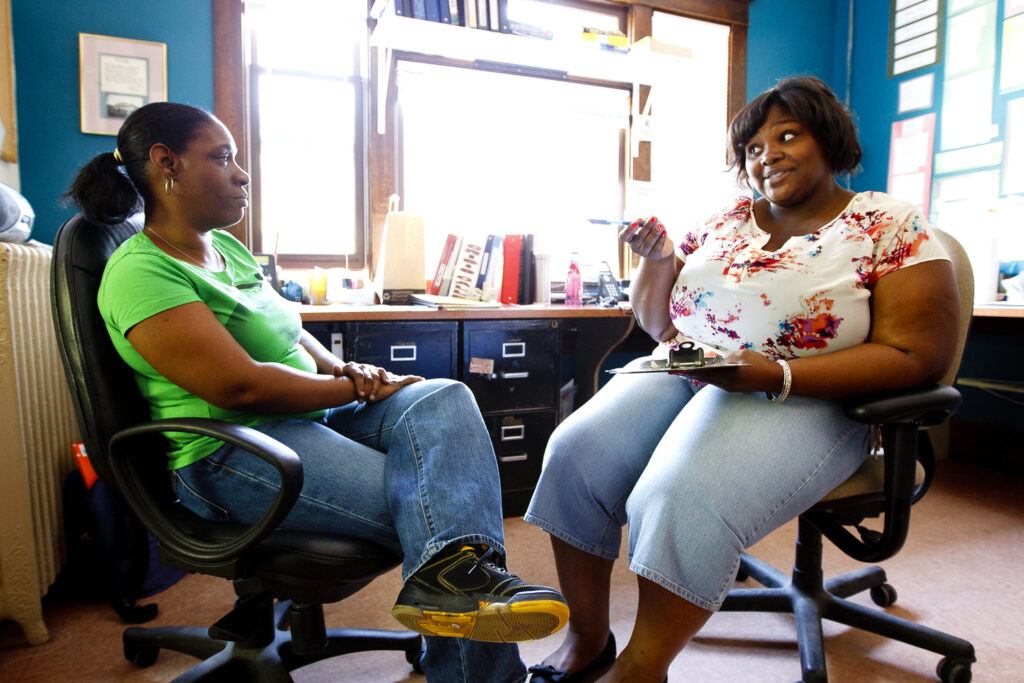
Experiential, community-based learning
St. Thomas students can start working within their communities long before graduation. Field education places students into more than 200 agencies and practice settings each year. The collaboration between students, field instructors and faculty is a crucial link between theory and practice.
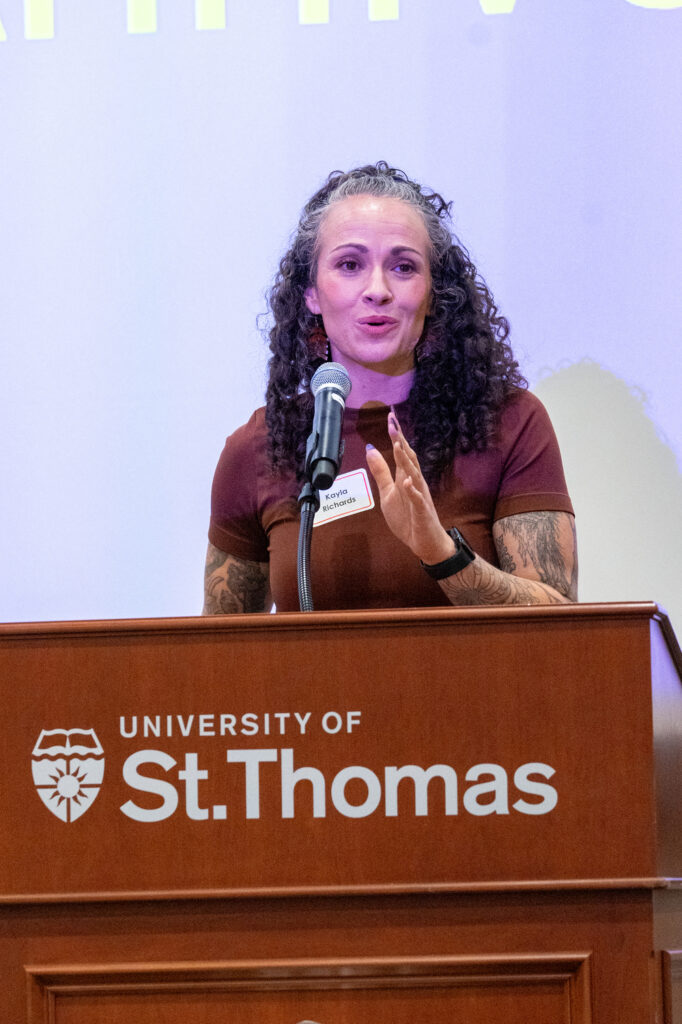
Kayla Richards ’17 MSW was placed with The Family Partnership (TFP), a nearly 150-year-old community-based organization serving families in Minneapolis impacted by poverty and adverse circumstances. TFP partners with St. Thomas to recruit students of color, new immigrants and LGBTQIA+ students for internships in their Diversity Social Work Advancement Program.
“This was a demonstrative way that St. Thomas acknowledged that for people of color, their experience in the social work field is different,” said Richards, who is Indigenous and a member of the Oglala Lakota Nation.
As the School of Social Work works to address a shortage of culturally responsive health professionals, many field placements offer opportunities to proactively advance health equity and social justice. For Richards, who currently serves as a community impact director at the Minnesota Justice Research Center, the chance to work on social justice issues proved pivotal in her journey.
“Being an Indigenous student in a field that is not wildly diverse, there were moments that were hard, but I often found that the people at St. Thomas were open, approachable and allowed students to take risks and do things differently,” Richards said. “My experience opened doors that I think otherwise would not have been opened.”
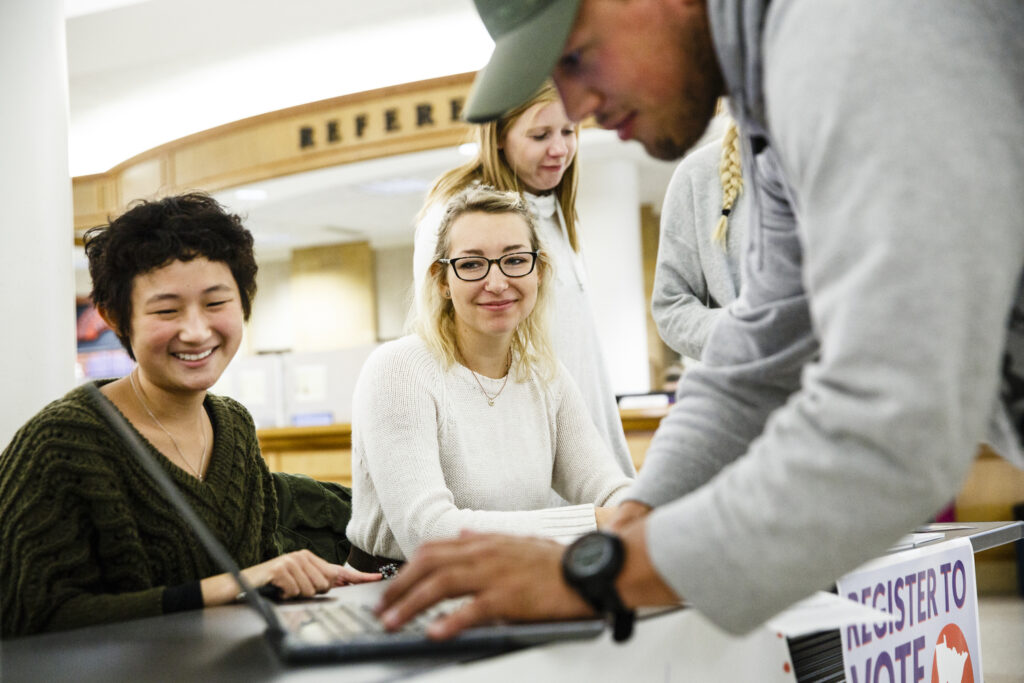
Preparing a new generation of educators
With an education rooted in justice and community engagement, graduates from the School of Social Work are in high demand; 97% are employed within six months of receiving their diploma.
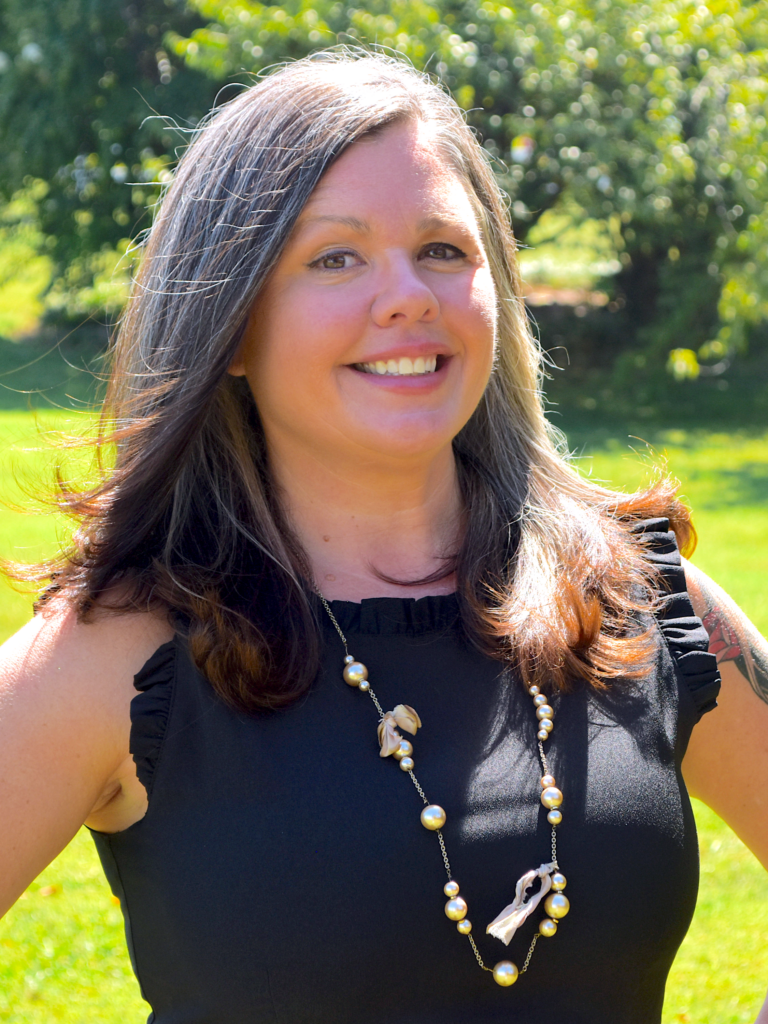
But the school’s impact goes significantly beyond the more than 3,500 undergraduate and graduate-level alumni. Inspiring the ultimate ripple effect, St. Thomas has established itself as a national leader in preparing a new generation of social work educators.
The St. Thomas Doctorate in Social Work (DSW), which debuted in 2014, was the first online doctoral program to focus solely on preparing social workers for university-level teaching.
Kate McClernon Chaffin ’22 DSW was drawn to the program’s offerings in transformative teaching pedagogy and curriculum development. The skills she learned at St. Thomas helped her land the role of assistant dean of faculty development at the College of Social Work at the University of Tennessee.
“When I’m working with faculty on new courses or mentoring students, I’m constantly asking myself, how am I contributing to make a better space around me,” McClernon Chaffin said. “And that’s the worldview that I learned at St. Thomas, which I’m so appreciative of.”
The School of Social Work has certainly come a long way from its first graduating class in 1974, which awarded bachelor’s degrees to just 13 students. In 2024, more than 300 Tommies are enrolled across its various degree programs.

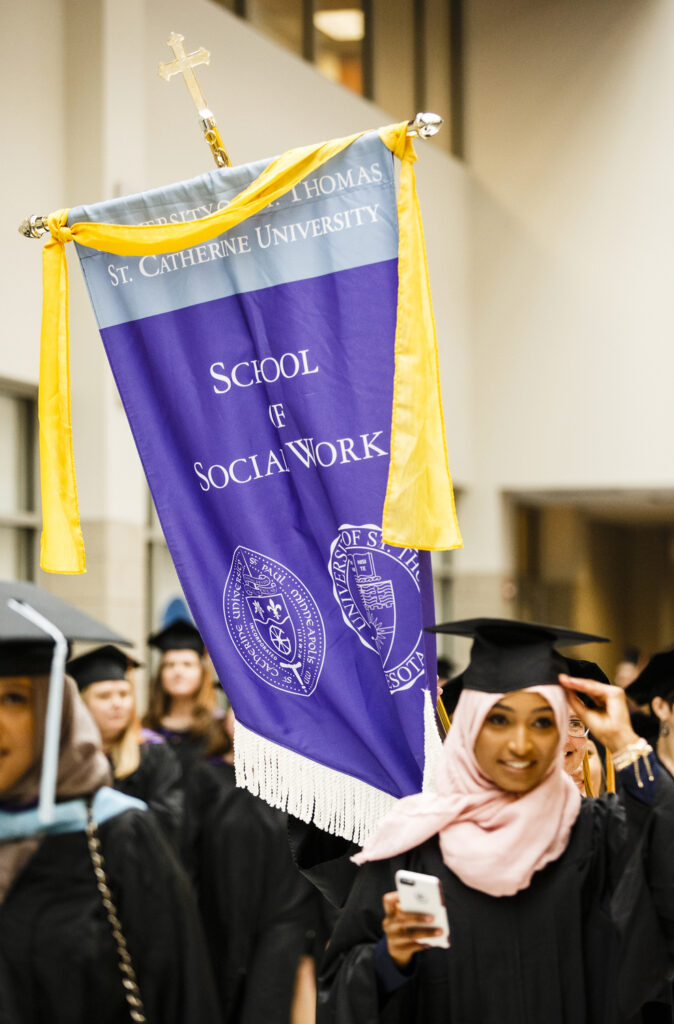
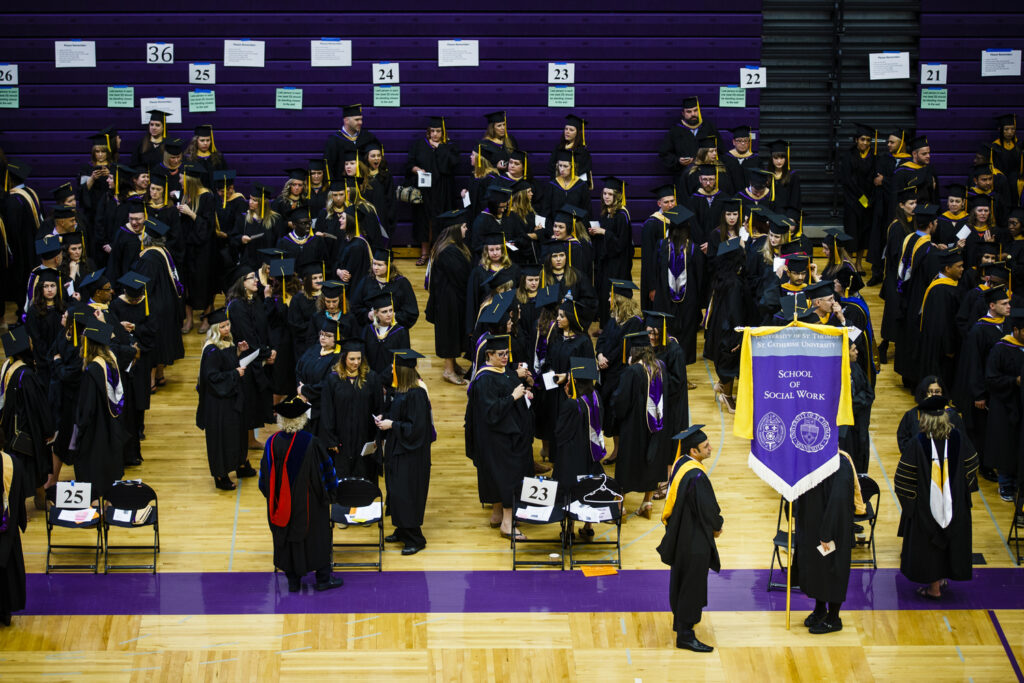
Alumni from the past five decades will be invited to a special 50th anniversary celebration in March. Leaders look forward to reflecting on the past and plotting a new future together.
“We’ve grown into a really vibrant, strong community,” Nesmith said. “Together, we envision a world that affirms and sustains the inherent dignity and worth of all humanity and we’ve made so much progress, but we have much more work to do.”

